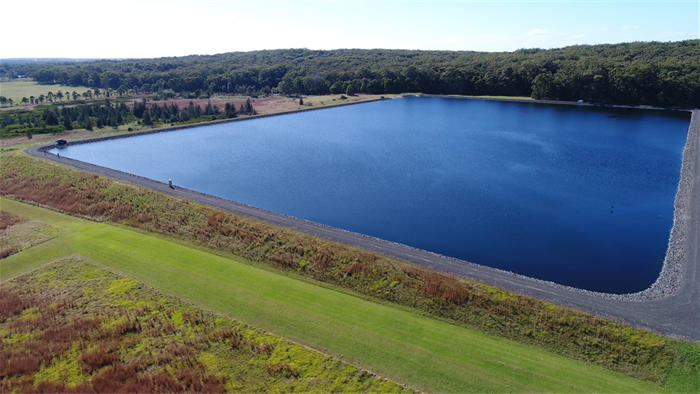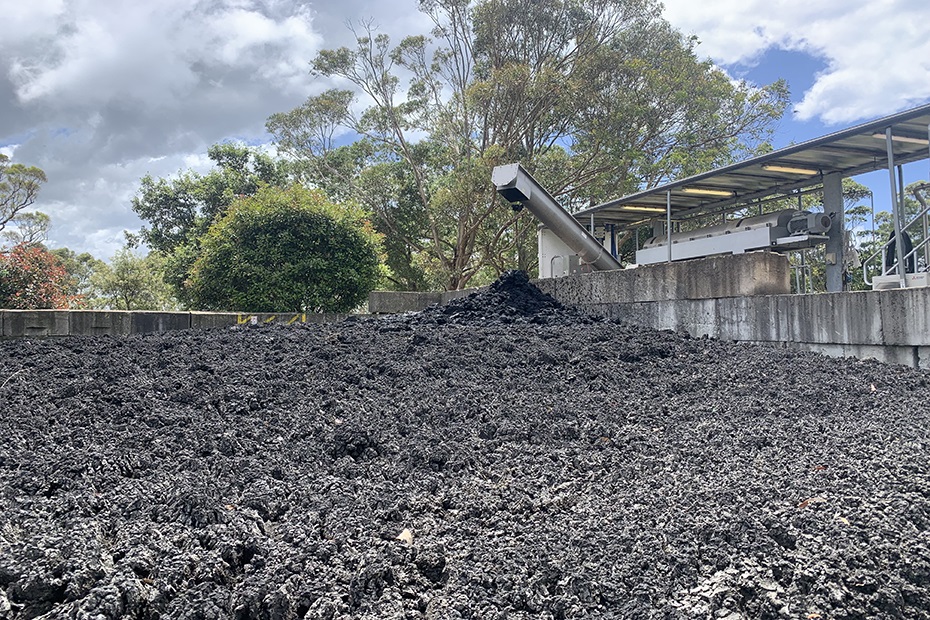Our reclaimed water management scheme
The Reclaimed Water Management Scheme (REMS) is a wastewater recycling scheme designed to beneficially reuse treated wastewater on local farms, sporting fields and golf courses.
Our wastewater recycling scheme promotes sustainable development by:
- Protecting the environment
- Reducing demand for potable water supplies
- Promoting local economic development
- Directly involving the community in water conservation
Shoalhaven City Council is involved in water reclamation schemes at nine (9) of its thirteen (13) wastewater treatment plants involving re-use on thirty-five (35) properties.

Image of our recycled water storage dam
Our Northern Shoalhaven REMS scheme is one of the largest and most complex water recycling schemes undertaken by a regional water authority.
First commissioned in 2002, the scheme now includes reclaimed water from 6 sewage treatment plants which is distributed to 33 dairy farms, two golf courses and several sporting grounds providing reclaimed water for irrigation to well over 600 hectares of land. We are committed to promoting the beneficial use of treated wastewater and solids removed during the treatment process.
Since its inception, REMS has facilitated the recycling of over 25,804ML of reclaimed water which is 59% of the total reclaimed water produced.
More information
Click on the tabs below to discover the scheme components and to find out what biosolids are.
Scheme components
The system is made up of a range of components which include:
- Bulk storage pond - Has a capacity of 600ML (around 12,000 average swimming pools or 600 Olympic swimming pools)
- Bulk storage return pump station - Draws reclaimed water from the pond to supply distribution
- Distribution storage reservoir - Holding 4ML, the reservoir balances the flows pumped from treatment plants to end-users
- Treatment plants - Included in the scheme are: Vincentia, Culburra Beach, Callala, St Georges Basin, Vincentia, Nowra and Bomaderry
- Distribution mains - Around 30km of pipeline connects the treatment plant to end-users including a 1400m pipeline constructed under the Shoalhaven River.
- Farm ponds and flow control works - Each property connected to the scheme has their own storage pond which holds approximately one day’s irrigation. A flow control valves automates the rate of supply to each bulk user.
Biosolids explained

Image of biosolids being processed by a centrifuge
What are biosolids?
Biosolids are the organic solid waste product recovered from the sewage treatment process and processed for re-use as fertiliser.
As with animal manure, the human wastewater contains nutrient rich solids which are treated and re-used to improve soil conditions.
During the treatment process, activated sludge is pumped from the bottom of the aeration basin to the sludge lagoons where it is processed through a dewatering machine called a 'centrifuge'.
The end product is left to dry on a prepared bed before being tested and classified for reuse.
On average, 5500 tonnes of biosolids are produced in Shoalhaven every year which is recycled onto farmland.